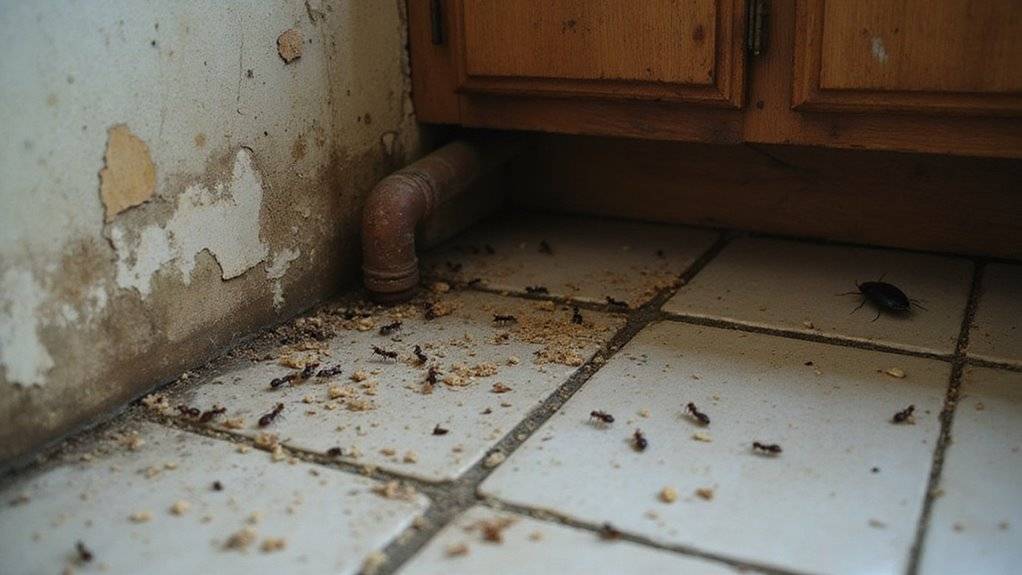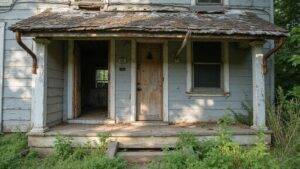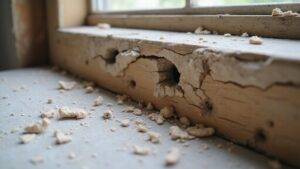Pest infestations can be a silent threat to your property’s value. Many homeowners do not realize how quickly pests like termites or rodents can spread. They can cause damage before you even notice there is a problem.
This damage can make your home less attractive to buyers and appraisers. Repair costs can add up fast, and buyers may walk away from the sale. Pests can lower your property’s value by up to 10%.
Pest infestations can significantly reduce your property value, but you can take steps to prevent or manage this risk. Regular inspections and prompt treatment can help protect your investment.
You can keep your home’s value strong by staying proactive. This blog will guide you through key steps to prevent pests and protect your property’s value.
Key Takeaways
- Pest infestations can reduce property value by 5–10% due to structural damage and negative buyer perception.
- Visible signs of pests, like droppings or damaged wood, deter buyers and lower offers.
- Structural pests such as termites cause costly damage, weakening beams and floors and requiring expensive repairs.
- Homes with pest histories face lasting stigma, causing concern for recurring issues even after treatment.
- Professional pest control and preventative maintenance help preserve property value and reassure potential buyers.
Common Household Pests That Lower Home Value
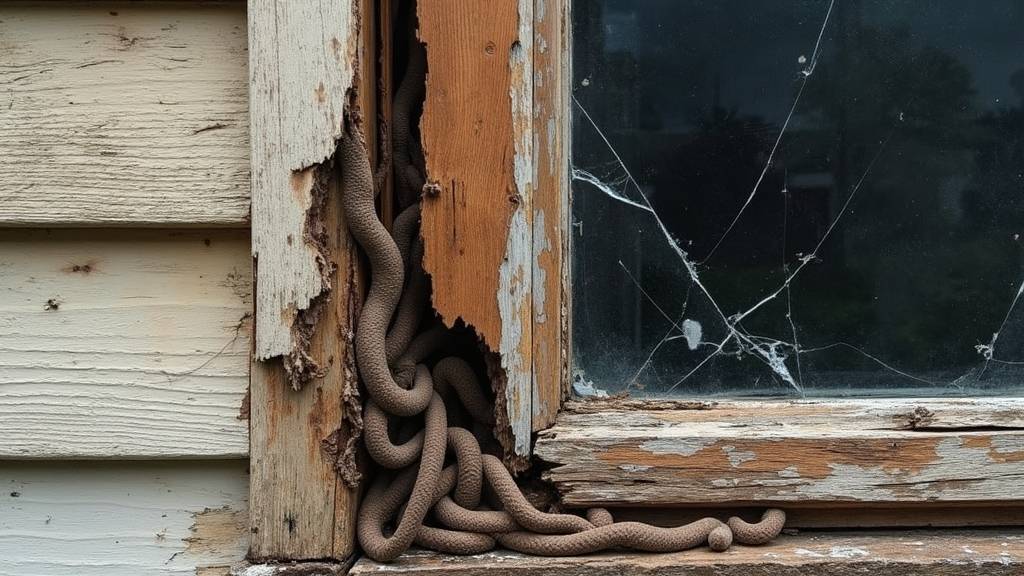
Common household pests can lower your home’s value. Cockroaches, rodents, ants, bed bugs, and carpenter ants are frequent problems. These pests make a home less appealing to buyers and can reduce appraisal values. Household pests like cockroaches, rodents, and ants can harm your home’s value and make it less attractive to potential buyers.
The National Pest Management Association reports that 30% of U.S. homes have these pest issues every year. Even small infestations may worry potential buyers. If infestations are ignored, your property value can drop.
DIY solutions might fix minor pest problems. Severe cases usually need professional help. If only DIY methods are used, pests may return and cause more damage.
Homeowners should seal cracks, keep the house clean, and store food well. Proactive care helps protect your home’s value. Taking action early builds buyer trust and protects your investment. Proper pest management evaluations are essential to maintain property appeal and prevent legal complications during sale.
Additionally, understanding legal disclosure requirements and managing pest damage properly can prevent legal complications during sale.
Structural Damage Caused by Termites
Termites can cause severe damage to a home’s structure. They eat wood from the inside, making beams and floors weak. If termites are not found early, repairs can become very expensive. Regular inspections and quick action are essential for a quick, hassle-free sale in Virginia, especially when working with cash buyers like Align Real Estate Solutions. These insects feed on cellulose found in wood. Their tunnels inside beams can weaken your house over time. If you see sagging floors or damaged wood, termites might be the cause.
Termite damage often lowers the value of a home. If buyers or inspectors find signs of termites, they may lose interest. Repairs for termite damage can include replacing beams or strengthening foundations. If you do not treat a termite problem, it can get worse. Unchecked infestations can make your home unsafe. Regular inspections and prompt treatment can help prevent serious issues.
Rodent Infestations and Hidden Hazards
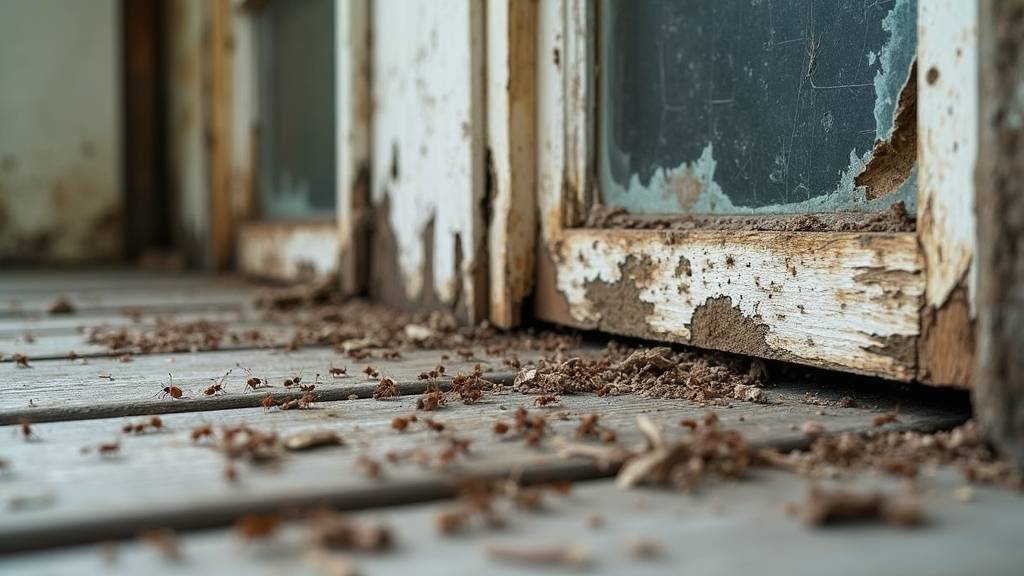
You can’t ignore the impact rodents have on both your property’s structure and your health. Studies show that rodents cause billions in annual damage by chewing through insulation, wiring, and even plumbing, while their droppings introduce dangerous pathogens and allergens. If you overlook these hazards, you risk both costly repairs and serious contamination issues that can drive down property value.
Additionally, the presence of rodents can raise concerns about hidden hazards like mold or structural instability, further diminishing your home’s appeal to buyers. Recognizing these issues early can help you address local market challenges, and prevent long-term damage that diminishes overall property worth.
Structural Damage From Rodents
Rodents can cause serious damage to a building’s structure. They often chew on wood, insulation, and electrical wires. This damage can weaken floors, walls, and support beams.
If rodents go unnoticed, repairs can become very expensive. The National Pest Management Association says rodents may cause up to 25% of house fires by gnawing wires. These pests often hide in floors, attics, and walls, making damage hard to spot.
If you ignore early signs of rodents, your property could lose value. Buyers know rodent damage is costly to fix. Professional inspection is important if you suspect rodents are present.
Health Risks and Contamination
Rodents can cause serious health problems when they enter a property. They bring bacteria and allergens into your home. People may get sick if they come into contact with rodent droppings or urine.
Food can become unsafe if rodents contaminate it with feces or urine. Diseases like Salmonella and Hantavirus may spread this way. Children and people with asthma are at higher risk for breathing problems.
Rodents may also chew through packaging or insulation. Damaged containers can leak chemicals and make the problem worse. If these risks are ignored, the property’s value may go down.
If you find signs of rodents, you should fix the problem quickly. Proper cleaning and repairs help protect your health and investment. Taking action early can prevent bigger issues later.
Mold and Moisture Issues Linked to Pests
Mold and moisture problems often happen because of pest infestations. Pests like termites, rodents, and carpenter ants can damage your home’s structure. If this happens, water can get inside and cause moisture issues. Structural damage from pests can create entry points for water intrusion, exacerbating moisture problems.
Homes with past pest problems are more likely to get mold. Inspection data shows these homes are 30% more likely to have mold growth. If you ignore early pest signs, hidden moisture may build up behind walls or under floors. Mold can damage building materials and lower your property value. Buyers usually see mold and moisture as big problems. If they notice these issues, they may ask for a lower price or refuse to buy.
Health Risks Associated With Pest Presence
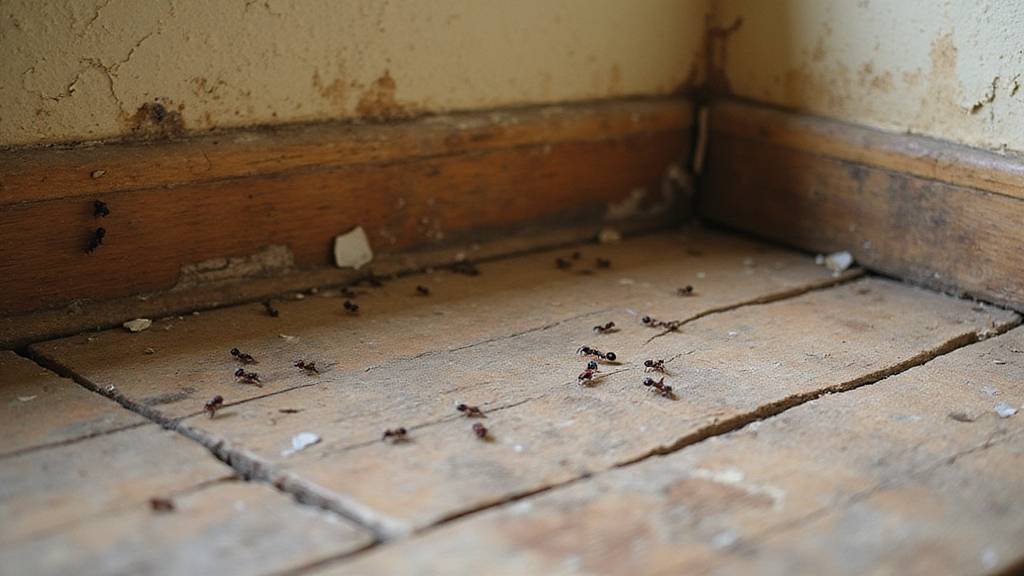
You face significant health risks when pests invade your property, including increased rates of allergic reactions and asthma as documented by the CDC. Rodents and insects can spread diseases such as salmonella and hantavirus, posing serious threats to occupants.
Studies also show that pest activity often leads to contaminated food sources, compounding potential health hazards. Additionally, pest infestations can compromise home safety, leading to structural damage and further health concerns. The presence of pests can also lead to the development of liens or claims if infestations cause property damage that results in legal or financial disputes.
Allergic Reactions and Asthma
Pests like cockroaches, rodents, and dust mites can cause allergic reactions and asthma. These pests release allergens into the air inside homes. If you have pests, you are more likely to have allergy or asthma problems.
Cockroach allergens are common in cities and often trigger asthma. Even a small pest problem can increase allergens in the air. Children and sensitive people may have more breathing issues if pests are present.
| Pest Type | Allergen Source | Impact on Health |
|---|---|---|
| Cockroaches | Droppings, skins | Asthma, skin rashes |
| Rodents | Urine, dander | Allergic reactions |
| Dust Mites | Feces | Asthma, runny nose |
If you ignore pest problems, your property may lose value and appeal. Taking action can help protect health and property.
Disease Transmission Risks
Pests can spread diseases that harm people and pets. Mosquitoes and ticks carry illnesses like West Nile virus and Lyme disease. These diseases can be transmitted to humans or animals with just one bite.
Rodents and cockroaches spread germs such as Salmonella and E. coli through their droppings. If these pests move across surfaces, they leave bacteria behind. This increases the risk of cross contamination in kitchens and living areas.
Homes with pest-related illnesses may lose up to 10% of their value. Potential buyers often avoid properties with known disease risks. If pest problems are not addressed, property investment may suffer.
Contaminated Food Sources
Pests can contaminate food and make it unsafe to eat. Rodents, cockroaches, and ants often spread germs in kitchens and pantries. If pests are present, the risk of food contamination rises quickly.
The Centers for Disease Control and Prevention (CDC) reports that pests can spread over 35 harmful germs. These include Salmonella, E. coli, and Listeria. Even small traces of pest droppings or skin can make food dangerous.
If someone finds or suspects contaminated food, they may worry about the property’s safety. This can lower your home’s value. If a foodborne illness is traced to your property, you could also face legal problems.
Impact on Home Appraisals and Inspections
Pest infestations can lower your home’s appraised value and affect inspection results. Appraisers and inspectors look for any signs of pests. If they find problems, they may lower the value or ask for repairs. Addressing pest issues promptly can help reduce legal risks and prevent further damage or liability. Homes with pest issues often appraise 5% to 10% lower than similar homes without pests. Inspectors look for droppings, nests, or damage.
If you have these issues, you may need professional pest control before selling. Proper management of vacant property maintenance can also help prevent infestations that damage the home’s condition and value. If you fix pest problems early, you can avoid delays or lower offers. Regions with more infestations may face stricter inspections. Homeowners should address pest issues before listing their homes to protect their value.
Stigma and Buyer Perceptions After Infestation
Homes with past pest infestations often face negative buyer opinions. Buyers may think the house still has problems, even after treatment. This can make it harder to sell the property.
If buyers believe there could be hidden or new issues, they may hesitate to make an offer. The 2023 National Association of Realtors survey found that 61% of buyers worry about old infestations. These concerns lead to fewer offers and longer selling times.
Properties with a history of infestation may lose 3–8% of their value. Even if the pests are gone, buyers still worry about damage or them coming back. This shows that stigma and buyer concerns can have a lasting effect on your home’s value.
Cost of Pest Remediation and Repairs
Pest remediation and repairs can be expensive but are often necessary. Costs for professional pest control services typically start around $300 and can exceed $5,000 in severe cases. These prices do not include the cost of fixing damage caused by pests. Structural integrity may be compromised if pests like termites or rodents have caused significant damage to wood framing or other essential components.
Termite damage alone averages $3,000 per affected home. You may have to repair wood, insulation, or wiring if pests cause harm. If you wait to address an infestation, repair costs usually get higher. Prompt pest control and repairs help protect your property’s value. Buyers are more interested in homes that are safe and well-maintained. If you act quickly, you can avoid larger expenses later.
Insurance Implications of Pest Damage
Homeowners insurance does not usually cover damage from pests. Most policies exclude losses from termites, rodents, or insects. If you file a claim for pest damage, your insurer will likely deny it.
Insurance companies expect homeowners to prevent pest problems with regular maintenance. Data from the Insurance Information Institute shows insurers view pest damage as avoidable. If you do not take care of pests, you are responsible for repairs.
Termite repairs can cost about $3,000 per incident. Some insurance companies offer limited add-ons for pest coverage, but these are rare. You should review your policy to understand your coverage.
If you ignore pest control, you may face high repair costs. Unresolved pest damage can lower your property value. Future buyers and insurers may see this as an ongoing risk.
Additionally, proper documentation of pest management efforts can help protect your claim reputation and demonstrate due diligence. Being proactive with pest prevention is also considered an important aspect of property maintenance that insurers and buyers look for.
Legal Disclosure Requirements for Sellers
You need to understand your state’s laws on disclosing pest infestations before listing your property. Data shows that failing to disclose known issues can lead to costly lawsuits and contract cancellations. By complying with legal requirements, you reduce financial risk and maintain transparency with buyers.
State Laws on Disclosure
State laws decide if you must tell buyers about pest problems when selling a home. Each state has different rules for disclosure. Sellers should always check their state’s laws before listing a property.
Some states require you to share both past and present pest issues. Others only ask you to mention current infestations. If you are unsure, you should ask a real estate expert or lawyer for advice.
The table below shows disclosure rules in five states:
| State | Disclosure Required | Pest Control History Needed? |
|---|---|---|
| California | Yes | Yes |
| Texas | Yes | No |
| New York | Yes | No |
| Florida | Yes | Yes |
| Illinois | Yes | No |
Knowing and following these rules can help you avoid legal trouble. If you do not follow the law, you could face lawsuits. Making honest disclosures builds trust with buyers.
Consequences of Nondisclosure
Not disclosing pest infestations can cause serious legal problems for sellers. Buyers may sue if they discover hidden pest issues after buying. Courts often make sellers pay for repairs and losses.
Nondisclosure penalties depend on the state. Sellers may have to pay fines or even cancel the sale. In some cases, courts can force a seller to buy back the home.
If a seller hides pest problems, it can harm their reputation. The 2022 National Association of Realtors found 15% of lawsuits were about nondisclosure. Pest issues were a top reason for these lawsuits.
Sellers should always follow state laws about disclosure. If a seller finds pests, they should report and document everything clearly. Being honest helps avoid legal trouble.
Signs Buyers Look For During Home Tours
During home tours, buyers look for signs that pests might be a problem. Small holes in walls or cabinets can mean termites or rodents. Stains or musty smells in attics or basements make buyers worry about moisture and pests. Analyzing comparable sales can also reveal if pest issues have historically affected the property’s value.
Outside, buyers check gardens for leaf damage or pest trails. If they see pest-resistant plants, they may think the yard is well cared for. Visible droppings or damaged wood can lower the home’s value. If buyers notice insect wings, they may suspect an infestation. The National Association of Realtors says 39% of buyers offer less if they see pests. These signs can quickly change how buyers feel about a property.
Preventative Measures to Safeguard Property Value
Preventative measures are important for keeping your property value high. Regular care can stop pests from causing up to 15% loss in value. If you act early, you can avoid costly repairs later.
Landscaping helps prevent pests from getting close to your home. Trim trees and shrubs so they do not touch the house. If you see drainage problems, fix them to stop standing water from attracting insects.
Proper sealing keeps rodents and bugs out. Check and seal gaps around windows, doors, and vents. Firewood and debris should be stored away from the building.
Routine yard care makes your property look tidy and less inviting to pests. If you keep up with maintenance, buyers and appraisers will notice your effort. These steps make your home more attractive and valuable.
The Role of Professional Pest Control Services
Professional pest control services help protect property value. If you use these services, your home is less likely to lose value. Professional pest control can make your property more appealing to buyers.
Experts use effective pest prevention plans. If they find problems, they treat them quickly and safely. Pest control companies often use eco-friendly products that protect your home and the environment.
Regular pest control may help your home keep up to 15% more value, according to the National Pest Management Association. Technicians can find risks early and stop infestations before they become serious. If you show buyers that you use professional pest control, they may see your home as well cared for.
Long-Term Financial Consequences of Untreated Infestations
Untreated pest infestations can lead to serious long-term financial problems. Costs often increase as damage gets worse over time. Early pest control saves money and protects property value. Ignoring pest problems now can mean higher costs and bigger headaches later—early action protects both your wallet and your property.
Pests like termites can cause expensive structural damage. Repairs for these issues are often much higher if you wait. Properties with visible pest problems often receive lower appraisals.
Insurance companies may raise your premiums or deny claims for preventable pest damage. Rental properties may lose tenants or stay empty longer. This loss of rental income can hurt your investment.
If you want to refinance or get a loan, property condition matters. Lenders may refuse financing for homes with pest issues. Good pest management helps keep your finances stable and your property attractive.
Conclusion
Pest infestations can significantly reduce a property’s value and make it harder to sell. If homeowners ignore pest problems, they may face costly repairs and decreased buyer interest. Regular inspections and prompt treatment help protect your property’s worth.
If you are dealing with pest damage and need to sell quickly, we buy houses for cash in any condition. When you want a simple and fast sale, working with us can save you time and stress.
Contact Align Real Estate Solutions today if you want to sell your house without hassle or repairs. We are ready to help you move forward with confidence. Let us provide you with a fair cash offer today.
Author
-

Zach Koops is co-founder and Real Estate Success Manager at Align Real Estate Solutions, serving homeowners across Virginia since 2024. With a passion for real estate and a heart for people, Zach has built his career around helping sellers navigate tough situations—foreclosure, inheritance, relocation, repair-overload—with clarity and compassion. He’s known for being straightforward, steady under pressure, and deeply invested in relationships. Outside of work, he spends his time as a husband and father, enjoys the outdoors in Shenandoah Valley, loves singing on stage, and constantly seeks growth through reading and new experiences.

